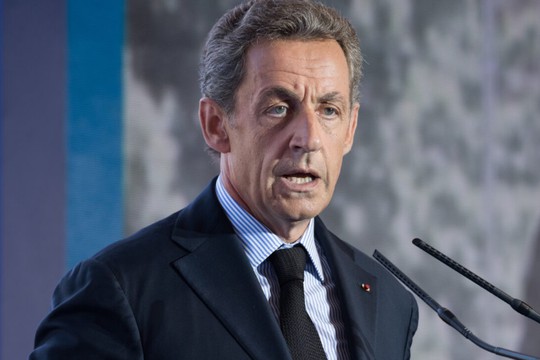Former French president Nicolas Sarkozy
Photo: Responsible Statecraft
In an interview with Le Figaro published on August 16 and based on his new book, former French President Nicolas Sarkozy laid out what has been missing from Western thinking on the war in Ukraine: a diplomatic Plan B in case the present Ukrainian offensive fails, notes American ‘Responsible Statecraft’.
Quite apart from the threats of disastrous escalation and a NATO-Russia war described by Sarkozy, Westerners who are or claim to be friends of Ukraine should consider the consequences of an unending war on that country. These include a continued destruction of the Ukrainian economy, with no certainty at all over who will pay to rebuild it. They would also entail the indefinite postponement of the process of EU accession, which would have offered Ukraine its best chance of truly joining the West.
In addition to all of this: the possibility that a Ukrainian army exhausted and bled white by years of failed offensives will eventually fall victim to a Russian counter-attack, leading to territorial losses far greater than Ukraine has suffered so far.
Sarkozy actually said:
“Without compromise, nothing will be possible and we run the risk that the situation will degenerate at any moment. This powder keg could have frightful consequences…
Any return to the way things were before [ie Ukrainian rule over Crimea] is an illusion. An incontestable referendum… will be needed to solidify the current state of affairs.”
On the question of NATO membership for Ukraine, Sarkozy said that:
“Ukraine must pledge to remain neutral… NATO could at the same time affirm its willingness to respect and take into account Russia’s historic fear of being encircled by unfriendly neighbors.”
He also described as unrealistic and hypocritical suggestions that Ukraine can join the European Union in the foreseeable future, comparing this to Turkey’s hopeless decades-long efforts: “We are selling fallacious promises that will not be kept to.”
On French President Emmanuel Macron’s previous efforts to negotiate with Putin, Sarkozy said that these had been correct, but that Macron had failed to follow up with any concrete proposals for compromise, partly “due to pressure from eastern Europeans.”
Sarkozy asked Europeans to remember that, like it or not, Russia will always remain part of Europe and a neighbor of the EU, with which it will be necessary to co-exist. Therefore, “European interests aren’t aligned with American interests this time.”
Despite the near-universal vilification Sarkozy’s interview has provoked, much of what he said has in fact been stated on background by some U.S. and European officials, and quoted in the Western media.
At present — and as the Pentagon correctly in advance warned was likely — the Ukrainian army is still very far from being able to retake Crimea, and will very likely never be in that position. The probable failure of the present Ukrainian offensive is now being widely discussed by Western official and unofficial analysts. Once again, however, few have drawn the obvious conclusion that the result will be a prolonged war of attrition, leading either to an eventual ceasefire along present lines or — possibly — to a new Russian victory.
Even fewer have echoed Sarkozy in arguing that the eventual result will have to be a compromise peace, and suggested what the terms of that peace should be.
As to Ukrainian EU membership, EU officials and analysts echoed in private Sarkozy’s profound skepticism that this would be possible for a very long time to come. This is partly because the costs of Ukrainian reconstruction would place unprecedented and colossal strain on EU budgets.
Six months ago, the World Bank estimated that the cost of this reconstruction would already be around $411 billion — two and a half times Ukraine’s GDP for 2022 and more than twelve times the EU’s entire present annual spending on aid to its poorer members. Who wants to pay?
read more in our Telegram-channel https://t.me/The_International_Affairs

 11:41 07.09.2023 •
11:41 07.09.2023 •























